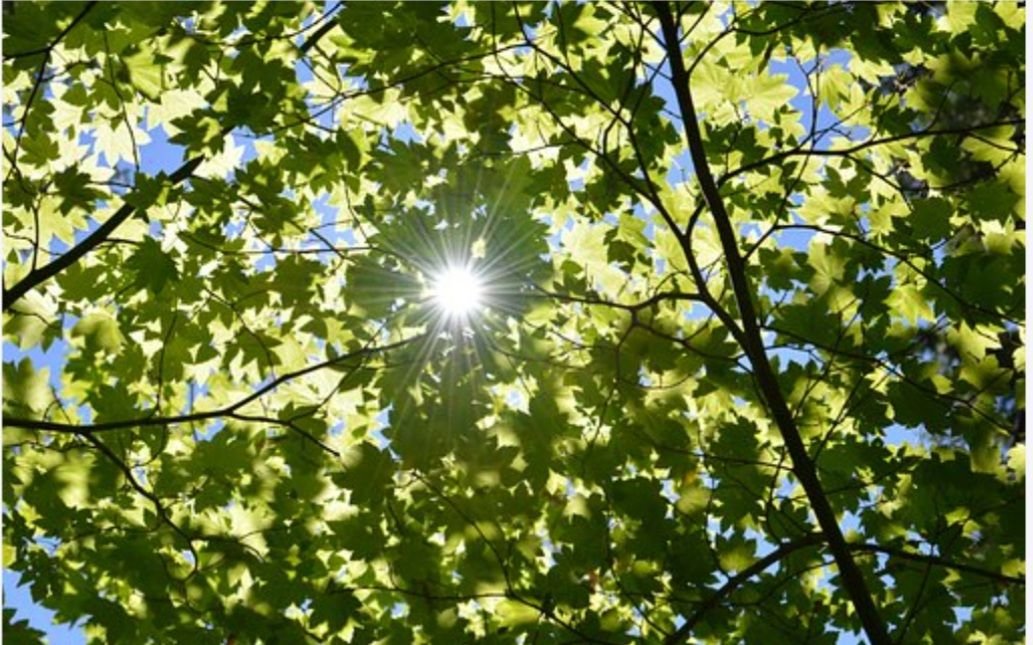What we have been taught by students of senior scholars since 1995 regarding disagreements involving various personalities
In The Name of Allah, The Most Merciful, The Bestower of Mercy.
The Basis of Sound Allegiance
The text of this reminder was quoted by Ustadh Abu Ukkashah, may Allah preserve him and all the teachers, during a one day conference in Stoke On Trent
Shaikh Al-Islam Ibn Taymiyyah, may Allah have mercy upon him, said:
ﻭﻟﻴﺲ ﻟﻠﻤﻌﻠﻤﻴﻦ ﺃﻥ ﻳﺤﺰﺑﻮﺍ ﺍﻟﻨﺎﺱ
ﻭﻳﻔﻌﻠﻮﺍ ﻣﺎ ﻳﻠﻘﻲ ﺑﻴﻨﻬﻢ ﺍﻟﻌﺪﺍﻭﺓ ﻭﺍﻟﺒﻐﻀﺎﺀ،
ﺑﻞ ﻳﻜﻮﻧﻮﻥ ﻣﺜﻞ ﺍﻷﺧﻮﺓ ﺍﻟﻤﺘﻌﺎﻭﻧﻴﻦ ﻋﻠﻰ
ﺍﻟﺒﺮ ﻭﺍﻟﺘﻘﻮﻱ ﻛﻤﺎ ﻗﺎﻝ ﺗﻌﺈﻟﻰ
وَتَعَاوَنُوا عَلَى الْبِرِّ وَالتَّقْوَى وَلا تَعَاوَنُوا عَلَى الإثْمِ وَالْعُدْوَانِ
وليس لأحد منهم أن يأخذ على أحد عهداً بموافقته على كل ما يريده وموالاة من يواليه ومعاداة من يعاديه،بل من فعل هذا كان من جنس جنكز خان وأمثاله الذين يجعلون من وافقهم صديقاً واليا، ومن خالفهم عدوَّا باغيا، بل عليهم وعلى أتباعهم عهد الله ورسوله بأن يطيعوا الله ورسوله ويفعلوا ما أمر الله ورسوله ويحرموا ما حرم الله ورسوله ويرعوا حقوق المعلمين كما أمر الله ورسوله، فإن كان أستاذ أحد مظلوماً نصره، وإن كان ظالماً لم يعاونه على الظلم بل يمنعه منه كما ثبت في الصحيح أنه قال:
(انصر أخاك ظالماً أو مظلوماً. قيل: يا رسول الله: أنصره مظلوماً فكيف أنصره ظالماً؟. قال تمنعه من الظلم فذلك نصرك إياه).
وإذا وقع بين معلم ومعلم أو تلميذ وتلميذ أو معلم وتلميذ خصومة ومشاجرة لم يجز لأحد أن يعين أحدهما حتى يعلم الحق، فلا يعاونه بجهل ولا بهوى، بل ينظر في الأمر، فإذا تبين له الحق أعان المحق منهما على المبطل سواء كان المحق من أصحابه أو أصحاب غيره، وسواء كان المبطل من أصحابه أو أصحاب غيره، فيكون المقصود عبادة الله وحده وطاعة رسوله واتباع الحق والقيام بالقسط
قال تعالى
يا أيها الذين آمنوا كونوا قوامين بالقسط شهداء لله ولو على أنفسكم أو الوالدين والأقربين، إن يكن غنياً أو فقيراً فالله أولى بهما، فلا تتبعوا الهوى أن تعدلوا وإن تلووا أو تعرضوا فإن الله كان بما تعملون خبيراً
It not allowed for the teachers to initiate (illegal) partisanship between the people and do that which would cause enmity and hatred between them; but rather they should be brothers who cooperate upon righteousness and piety, as Allah [The Exalted] said: [وَتَعَاوَنُوا عَلَى الْبِرِّ وَالتَّقْوَىٰ ۖ وَلَا تَعَاوَنُوا عَلَى الْإِثْمِ وَالْعُدْوَانِ – Help you one another in Al-Birr and At-Taqwa [virtue, righteousness and piety]; but do not help one another in sin and transgression]. [Al-Maa’idah. 2] [Footnote a]
It is not allowed for anyone of them to receive a pledge from anyone to be in agreement with him in everything he wants – having allegiance to the one he is allied to and enmity against the one he harbours enmity, and whoever does this is similar to Genghis Khan and his ilk (in this affair), who take as their loyal friends the one in agreement with them and the one who oppose them as a rebellious enemy; rather it is obligated on them and their followers (i.e. the teachers) to fulfil the covenant of Allah and His Messenger by obeying Allah and His Messenger, doing that which Allah and His Messenger have commanded, declare unlawful that which Allah and His Messenger have declared unlawful, and preserve the rights of the teachers in the manner commanded by Allah and His Messenger. So, if one’s teacher is oppressed, he should help him; but if the teacher is the oppressor, he should not aid him in his act of oppression; rather he forbids him from it, as it has been established in the authentic books of hadeeth that the Prophet [peace and blessings of Allah be upon him] said, “Help your brother, whether he is an oppressor or he is an oppressed one. People asked, “O Allah’s Messenger! It is all right to help him if he is oppressed, but how should we help him if he is an oppressor?” The Prophet said, “By preventing him from oppressing others.” [Saheeh Al-Bukhaari 2444]
If an argument and dispute occurs between a teacher and another teacher, or between a student and another student, it is not permissible for anyone to help one of them until he knows the truth – neither to aid him based on ignorance nor desires; rather he he examines the affair, so if the truth becomes clear to him, he helps the one who deserves to be helped (due to him being upon the truth) against the one upon error – regardless whether the one who deserves to be helped is one of his companions or the companion of someone else, or whether the one upon error is one of his companions or the companion of someone else. Therefore, the aim is only to worship Allah alone, obedience to Allah’s Messenger, adherence to truth and establishment of justice. Allah [The Exalted] said:
يا أيها الذين آمنوا كونوا قوامين بالقسط شهداء لله ولو على أنفسكم أو الوالدين والأقربين، إن يكن غنياً أو فقيراً فالله أولى بهما، فلا تتبعوا الهوى أن تعدلوا وإن تلووا أو تعرضوا فإن الله كان بما تعملون خبيراً
O you who believe! Stand out firmly for justice, as witnesses to Allah; even though it be against yourselves, or your parents, or your kin, be he rich or poor, Allah is a Better Protector to both (than you). So follow not the lusts (of your hearts), lest you may avoid justice, and if you distort your witness or refuse to give it, verily, Allah is Ever Well-Acquainted with what you do. [Surah An-Nisaa. Ayah 135] [1] [Footnote b]
The Big Personalities
Al-Allamah Rabee Bin Hadi Al-Mad’khali, may Allah have mercy upon him, said: The seeker of truth is not diverted from the truth, fairness and justice due to admiration of the big personalities and being amazed by them, for indeed the truth is more worthy to be followed. It is not permissible to drop the proofs for the sake of this or that great man. The principle [rule] of the Muslim – the unbiased one, the seeker of truth – is always:
قُلْ هَاتُوا بُرْهَانَكُمْ إِن كُنتُمْ صَادِقِينَ
Say, bring forth your proofs if you are truthful. [An-Nahl. 64] [2]
Imam Ash-Shawkaanee, may Allah have mercy on him, said:
فاعلم أنه إذا وقع الخلاف بين المسلمين في أن هذا الشيء بدعة او غير بدعة ، أو مكروه او غير مكروه ، او محرم او غير محرم ، او غير ذلك ، فقد اتفق المسلمون : سلفهم وخلفهم ، من عصر الصحابة الى عصرنا هذا – وهو القرن الثالث عشر منذ البعثة المحمدية – أن الواجب الاختلاف في أي أمر من أمور الدين بين الأئمة المجتهدين : هو الرد الى كتاب الله سبحانه ، وسنة رسوله الناطق بذلك
الكتاب العزيز ( ٤ : ٥٩ فإن تنازعتم في شيء فردوه إلى الله والرسول ( ومعنى الرد الى الله سبحانه : الرد الى كتابه
ومعنى الرد إلى رسوله ال : الرد الى سنته بعد وفاته وهذا مما لا خلاف فيه بين جميع المسلمين . فإذا قال مجتهد من المجتهدين
هذا حلال . وقال الآخر : هذا حرام : فليس
أحدهما أولى بالحق من الآخر وإن كان اكثر منه علماً ، أو اكبر منه سنا ، او اقدم منه عصراً لأن كل واحد منهما فرد من أفراد عباد الله ، ومتعبد بما في الشريعة المطهرة، مما في كتاب الله وسنة رسوله ، ومطلوب منه ما طلب الله من غيره من العباد . وكثرة علمه وبلوغه درجة الاجتهاد او مجاوزته لها لا يسقط عنه شيئاً من الشرائع التي شرعها الله لعباده ، ولا يخرجه من جملة المكلفين من العباد
Know that when differing arise among Muslims regarding whether this thing (matter) is a Bidah or not a Bidah, (something) disliked or not disliked, prohibited, or not prohibited, or other than that, there is a consensus among Muslims (i.e. their scholars) —both the early generations and those that followed, from the era of the Companions to the present day, which is the thirteenth century since the advent of the Prophethood—that the obligation in any differing – in any issue among the issues of the religion – between Imams of Ijtihad is to refer back to the Book of Allah, the Exalted, and the Sunnah of His Messenger, as stated in Allāh’s Book:
فَإِن تَنَٰزَعْتُمْ فِى شَىْءٍ فَرُدُّوهُ إِلَى ٱللَّهِ وَٱلرَّسُولِ
And if you disagree among yourselves over anything then refer it back to Allāh and the Messenger. [An-Nisa 59]
The meaning of referring back to Allah, the Exalted, is to refer to His Book, and the meaning of referring to His Messenger, peace and blessings of Allāh be upon him, is to refer to his Sunnah after his passing. This is a matter about which there is no differing among the Muslims.
If a Mujtahid among the Mujtahideen says that this (thing) is lawful while another says this (thing) is unlawful, neither is any of the two more entitled to the truth than the other, even if he possesses more knowledge, older, or closer to the (early era of Islam). This is because each of them is a servant of Allāh among the servants of Allāh, (required) to worship (Allāh) based on what is found in the pure Sharia- that which is found in Allāh’s Book and the Sunnah of His Messenger, and what is required of him is required of other than him among Allāh’s servants. His abundant knowledge, the attainment of the level of Ijtihad, or even surpassing it, does not exempt him from any of the religious laws legislated by Allah for His servants, nor do they exclude him from those who have reached the age in which one is held accountable for his actions among the servants (of Allāh). [harh As-Sudoor Bi-Tahreem Raf Al-Quboor pages 1-2]
Shaikh Abdus Salaam Burgess, may Allah have mercy upon him, said:
Just as it is obligated to a student to recant a mistake, similarly, it is obligated to a teacher to return to the truth when he errs. He is not to be prevented from returning to the truth after reviewing a statement that he made and finds that it is in opposition to what is correct, for indeed that is a sign of equity and humbling (oneself) to the truth. Therefore, it is obligatory that one follows what is correct, whether it was (conveyed) by a younger or older person. It is a blessing that a teacher has amongst his students one who notifies him of his mistake and leads him to what is correct, so that he does not persist upon that ignorance. This requires that one shows gratitude to Allah, The Exalted, and then being thankful to the person through whom one was guided, whether it was a student or other than him. [An Excerpt from ‘Awā’iq at-Talab p. 52]
Only Allah’s Pleasure Should Be Sought
Shaikh Al-Islam Ibn Taymiyyah, may Allah have mercy upon him, said: One must know that neither is it conceivable to the intellect (i.e. sound intellect) nor (plausible) in the religion to seek the pleasure of the creation [i.e. mankind and Jinn] due to two affairs: First, Imam Ash-Shaafi’ee, may Allah have mercy upon him, said, “The people are an unattainable goal”. Therefore, it is obligated on you to (pursue) that which would rectify your affairs and adhere to it; abandon its opposite and do not concern (yourself) with it. Second, indeed, we have been commanded to (seek) the pleasure of Allah and His Messenger, as Allah, The Most High, said:
وَٱللَّهُ وَرَسُولُهُۥٓ أَحَقُّ أَن يُرْضُوهُ إِن كَانُوا۟ مُؤْمِنِينَ
But it is more fitting that they should please Allah and His Messenger (Muhammad), if they are believers.[at-Tawbah. 62]
It is obligated to us to fear Allah and not fear anyone except Allah, as Allah, The Most High, said:
فَلَا تَخَافُوهُمْ وَخَافُونِ إِن كُنتُم مُّؤْمِنِينَ
So fear them not, but fear Me, if you are (true) believers. [Aal Imran. 175]
Allah said:
فَلَا تَخْشَوُا۟ ٱلنَّاسَ وَٱخْشَوْنِ
Therefore fear not men but fear Me. [Al-Ma’idah. 44].
Allah said:
فَإِيَّٰىَ فَٱرْهَبُونِ
Then, fear Me (Allah) much [and Me (Alone), i.e. be away from all kinds of sins and evil deeds that Allah has forbidden and do all that Allah has ordained and worship none but Allah. [An-Nahl. 51]
Allah said:
وَإِيَّٰىَ فَٱتَّقُونِ
And fear Me and Me Alone. [Al-Baqarah. 41]
It is obligated to us to fear Allah – fear Allah concerning the (rights) of the people- neither harm them with our hearts (i.e. blameworthy hatred, malice etc) nor with our limbs (i.e. physical harm); fulfil their rights with our hearts and limbs (i.e. wish them good, love for them what we love for ourselves, physically do what will benefit them etc), but do not fear them and leave what Allah and His Messenger commanded. The one who adheres to this path will (reach) the (praiseworthy) outcomes, just as Aa’isha, may Allah be pleased with her, wrote to Mu’aawiyah, may Allah be pleased with him and his father, and said, “To proceed: Indeed, whoever seeks the pleasure of the people at the expense of Allah’s displeasure will (earn) Allah’s displeasure and Allah will cause the people to be displeased with him. And the praise of the people will become blame against him. And whoever seeks Allah’s Pleasure at the expense of people’s displeasure, will (earn) Allah’s Pleasure and Allah will cause the people to be pleased with him”.
Therefore, a person’s concern and intention should be nothing else but to (seek) the Pleasure of Allah and to avoid Allah’s displeasure, and there is no power or might except with Allah. [3]
Imam Muhammad Bin Salih Al-Uthaymeen, may Allah have mercy upon him, said: If all the people were pleased with you and Allah is not pleased with you, then indeed it will not benefit you except the Pleasure of Allah, The Mighty and Majestic, for indeed if Allah is pleased with you, He will make people become pleased with you and make their hearts incline towards you, as it has been reported in a hadeeth, “Indeed, when Allah loves a servant, He calls Jibreel and says, ‘Verily, I love this person so you should love him’. Then Jibreel loves him and makes an announcement in the heavens, saying, ‘Indeed, Allaah loves this person and you should love him’, so the inhabitants of the heavens love him. Then he is granted the (pleasure and acceptance) of the (people) in the earth”, just as Allah said:
إِنَّ ٱلَّذِينَ ءَامَنُوا۟ وَعَمِلُوا۟ ٱلصَّٰلِحَٰتِ سَيَجْعَلُ لَهُمُ ٱلرَّحْمَٰنُ وُدًّا
Verily, those who believe [in the Oneness of Allah and in His Messenger (Muhammad)] and work deeds of righteousness, the Most Beneficent (Allah) will bestow love for them (in the hearts of the believers). [Maryam. 96]
However, if a person seeks after the pleasure of the people at the expense of Allah’s displeasure, the affair will be the opposite. Allah will be angry with him and will make the people become angry with him. This is why when Mu’aawiyah became the Khaleefah, Aa’isha [may Allah be pleased with her] wrote to him, saying, “I heard the Prophet [peace and blessings of Allaah be upon him] say, ‘Whoever seeks the pleasure of Allah at the expense of the displeasure of the people, Allaah will suffice him against the people. Whoever seeks the pleasure of people at the expense of Allah’s displeasure, Allah will leave his affair to the people'”. [4]
———————————————————————
Footnote a: Imam Ibn Al-Qayyim, may Allah have mercy upon him, said:
This Ayah contains all the Masaalih [beneficial affairs] for the slaves in their worldly affairs and affairs related to the Hereafter- be it between themselves or between them and their Lord; for indeed every servant [of Allah] finds himself within two circumstances and obligations – either [required] to fulfil the obligations owed to Allah or the obligations owed to Allah’s creation. As for the obligations owed to the creation, they include [righteous] association, companionship, aiding one another upon what Allah loves and obedience to Allah, and that is the goal behind one’s search for happiness and success in the afterlife. There can be no happiness in the afterlife except through Bir [virtue] and Taqwaa [piety], for it is basis of all affairs of the religion. As for Taqwa, its reality is to act in obedience to Allah based on Iman in Allah and hoping for Allah’s Reward; fulfil what Allah has commanded based on having Iman in that which Allah has commanded and affirming the reward Allah has promised; abandoning what Allah has forbidden based on one’s belief that what Allah has forbidden is forbidden and fearing Allah’s punishment, just as Talq Bin Habeeb [may Allah have mercy upon him] said: ”When Fitna occurs, extinguish it with Taqwa”. So the people said, “What is Taqwa?” He said, “You act in obedience to Allah upon a light from Allah [i.e. Iman, sincerity etc] and hoping for reward from Allah. And you abandon disobedience to Allah upon a light from Allah and fearing the punishment of Allah”. This is the best of that which has been stated regarding Taqwa, for indeed there has to be an aim and a goal behind every deed. A deed cannot be considered an act of obedience to Allah and an act that gets one close to Allah until it is based on Iman, so that which leads to the performance of that deed is solely due to Iman – neither [Un-Islamic] customs nor [evil] desires, neither seeking praise nor status and other than it; rather it should be solely based on Iman and the aim behind it should be to attain Allah’s reward and seeking after Allah’s Pleasure. [An Excerpt from ‘Badaa’i At-Tafseer Al-Jaami Limaa Fassarahu Al-Imaam Ibnul Qayyim Al-Jawziyyah’ Vol 1 pages 307-311. Publisher: Daar Ibn Al-Jawziyyah 2nd Ed, 1431AH- Slightly paraphrased
Footnote b: https://salafidawah.uk/2024/12/08/a-measure-of-genuine-fear-of-allah-connected-to-establishing-justice/
[1] Majmoo Al-Fataawaa. 28/15-17. paraphrased]
[2] Al-Mulakh-khas Al-Jameel Fee Bayaan Manhaj Ash-Shaikh Rabee Fid-Da’wati Wal-Jarhi Wat-Ta’deel. Page 87
[3] An Excerpt from ‘Majmoo Al-Fataawaa 3/233. slightly paraphrased
[4] An Excerpt from ‘Riyaadh As-Saaliheen 1/163. slightly paraphrased








